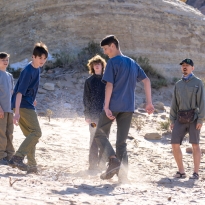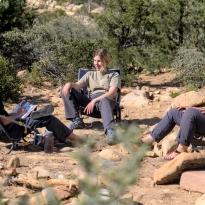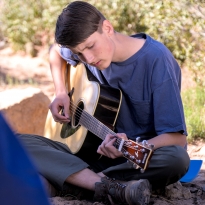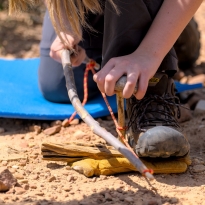Case Studies
Research in a Nutshell
We believe that program evaluation and research are essential to providing optimal services. Since 2008 we have conducted research to assess treatment outcomes for adolescent and young adult clients. In addition to our independent research projects, we participate in research with NATSAP and the OBH Council, and collaborate with researchers at universities around North America.
Peer-Reviewed Publications
Our research is published in peer-reviewed, professional journals and presented at conferences such as the American Psychological Association, Association of Experiential Education, and the National Association of Therapeutic Schools and Programs.
Methods
The main instrument we use in our studies is the Youth Outcome Questionnaire (YOQ). The YOQ is a simple, well-tested questionnaire designed to measure change over time regarding behavioral difficulties, depression, anxiety, interpersonal relations, and other psychological difficulties. Our research results support that Evoke clients experience positive change in areas of behavioral problems, substance use, depressive symptoms, and a variety of other issues.
In nature-based Therapy research, data on clients post-discharge is lacking. To fill this gap, we poured enormous energy and resources into following up with families 6 months, 18 months, and 3 years post-discharge. As a result, we saw strong response rates, which allowed us to conduct sophisticated analyses and provide evidence for the field regarding the long-term effectiveness of nature-based therapy. This follow-up research suggests that clients maintain progress and are able to generalize the skills they learned during treatment at Evoke. These exciting results validate the overwhelming positive anecdotal testimonials we have received over the years from parents and their children. Evoke is committed to evaluating outcomes.
Outcomes
Upon entering our program, adolescent clients, parents of adolescents, and young adult clients reported acute levels of dysfunction, similar to clients at in-patient treatment settings. At graduation, clients and their parents both reported healthy levels of functioning with fewer emotional struggles, increased hopefulness, and more success in their relationships. Participants in our study also demonstrated significant improvement in overall motivation, life skills, interpersonal relationships, hope, self-confidence, and emotion control.
Statistically and Clinically Significant Change Occurs During the Program
Clinically significant change means that there is a practical and noticeable difference in the client, and statistically significant change means that this difference is not by random chance. The YOQ defines "reliable change" as a drop of 13 points for parents, 18 points for adolescents, and 14 points for young adults.
On the graph, you can see that improvements go well beyond these reliable change thresholds during treatment. Participants went from functioning at a "clinical" or "abnormal" level at intake to being in the "community" or "normal" range of functioning upon graduation. In this study, we also discovered that the higher the level of dysfunction at intake or a specific type of diagnosis did not predict success or lack thereof. For families entering with a high level of conflict or acute problems, this can be comforting information.
Progress Maintained 3 Years After Graduation
At our 6 and 18-month follow-ups, clients retained the practical and noticeable differences apparent when they graduated the program. Similarly, these results were found 3 years after they finished the program.
Post-graduation scores indicated that on average, while there was some increase in symptoms following treatment, these were not clinically significant, and on average, clients remained in the normal range of functioning at 6 and 18 months, as well as 3 years after discharge. This suggests that clients are able to generalize skills learned at Evoke and maintain progress. Evoke is committed to continually evaluating long-term outcomes.









